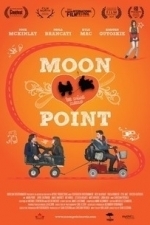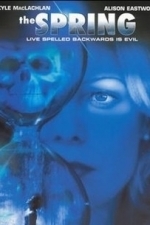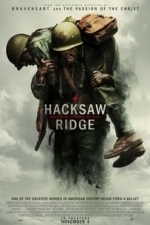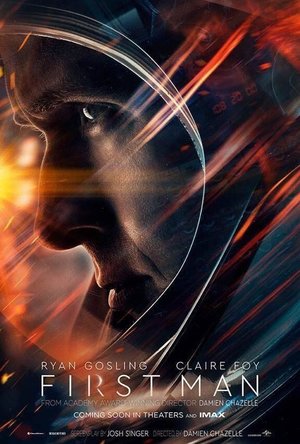Search
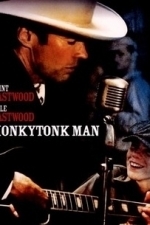
Honkytonk Man (1982)
Movie Watch
Multiple Academy Award winner Clint Eastwood directs and stars with his real-life son, Kyle, in this...
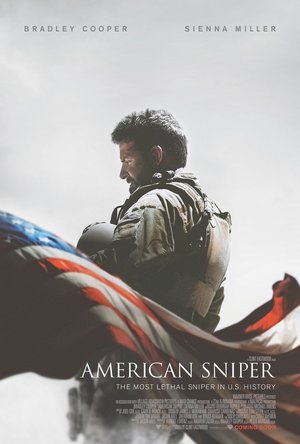
American Sniper (2015)
Movie Watch
From director Clint Eastwood comes American Sniper, starring Bradley Cooper as Chris Kyle, the most...
Gareth von Kallenbach (980 KP) rated American Sniper (2015) in Movies
Aug 6, 2019
Every once in a while a movie just sneaks up on me. A movie that comes out of nowhere to be one of the best that I have seen in a long while. This is how American Sniper hit me. I had seen previews, and thought that it might end up being a decent flick, but I did not expect it to grab a hold of me and teach me something about myself as well.
American Sniper sees Bradley Cooper as Chris Kyle in his second movie with “American” in the title (see 2013’s American Hustle). Most of us know the story of Chris Kyle, but for those that don’t here’s a quick rundown. Chris Kyle is the most lethal sniper in American history with 160 confirmed kills as a Navy SEAL, and another 95 probable kills. He served four tours, and wrote a book about his life. This film is based on that book. It tells the story of how he was influenced by his father, joined the military, and then went on to serve four tours while trying to balance his life at home with his wife and children. Acting as the true Sheepdog to all in his life, American Sniper looks at the struggle Kyle went through, and tells the story with passion and respect.
Cooper did a fantastic job portraying Texas-native Kyle. He was almost unrecognizable onscreen, as he put in 8 months of prep to get ready for this role, including a 4-hour a day training regime, and another two with a vocal coach. It was even said that some of Kyle’s brothers-in-arms who helped train Cooper and serve as consultants on the movie could feel his presence through Cooper at the end of training and all throughout filming. Sienna Miller was a great compliment to Cooper’s performance as Taya Kyle, Chris’ wife and the mother of his children. And not surprisingly, Clint Eastwood knocked it out of the park in this go at the Director’s chair. This is his best movie in years, though one would hope so with Chris Kyle’s father threatening to unleash hell if the memory of his son was disrespected with the film.
Mr. Kyle’s passing was a tragic event for those that knew him, and even those that did not know him. I think he may rest well knowing that this film, adapted from his own auto-biography, was handled beautifully with such passion and respect. If I have one issue with the film, it was the rapidity at which things progressed. So many different events packed into 15 minute segments with time just seemed to be rushing like a river, and glossing over parts of the story that could really have used some more build up or exploring. But such is the case when adapting a movie from a book. Though I am sure that movie-goers would not have minded lengthy the movie a bit, even with a run-time of 132 minutes.
If you see one movie this month, let it be American Sniper. If you have not heard of Chris Kyle, or his story, go see American Sniper. Hopefully, the Legend will live on through the lives he touched, and saved.
American Sniper sees Bradley Cooper as Chris Kyle in his second movie with “American” in the title (see 2013’s American Hustle). Most of us know the story of Chris Kyle, but for those that don’t here’s a quick rundown. Chris Kyle is the most lethal sniper in American history with 160 confirmed kills as a Navy SEAL, and another 95 probable kills. He served four tours, and wrote a book about his life. This film is based on that book. It tells the story of how he was influenced by his father, joined the military, and then went on to serve four tours while trying to balance his life at home with his wife and children. Acting as the true Sheepdog to all in his life, American Sniper looks at the struggle Kyle went through, and tells the story with passion and respect.
Cooper did a fantastic job portraying Texas-native Kyle. He was almost unrecognizable onscreen, as he put in 8 months of prep to get ready for this role, including a 4-hour a day training regime, and another two with a vocal coach. It was even said that some of Kyle’s brothers-in-arms who helped train Cooper and serve as consultants on the movie could feel his presence through Cooper at the end of training and all throughout filming. Sienna Miller was a great compliment to Cooper’s performance as Taya Kyle, Chris’ wife and the mother of his children. And not surprisingly, Clint Eastwood knocked it out of the park in this go at the Director’s chair. This is his best movie in years, though one would hope so with Chris Kyle’s father threatening to unleash hell if the memory of his son was disrespected with the film.
Mr. Kyle’s passing was a tragic event for those that knew him, and even those that did not know him. I think he may rest well knowing that this film, adapted from his own auto-biography, was handled beautifully with such passion and respect. If I have one issue with the film, it was the rapidity at which things progressed. So many different events packed into 15 minute segments with time just seemed to be rushing like a river, and glossing over parts of the story that could really have used some more build up or exploring. But such is the case when adapting a movie from a book. Though I am sure that movie-goers would not have minded lengthy the movie a bit, even with a run-time of 132 minutes.
If you see one movie this month, let it be American Sniper. If you have not heard of Chris Kyle, or his story, go see American Sniper. Hopefully, the Legend will live on through the lives he touched, and saved.
Movie Metropolis (309 KP) rated American Sniper (2015) in Movies
Jun 10, 2019
Incredibly Harrowing
There’s something about Clint Eastwood’s varied directing career that puts him among the greats of the craft. Along with Spielberg, Scott and Fincher, Eastwood has created some of cinema’s greatest films – yet he goes about it in a completely different fashion to his peers, he doesn’t shout about it.
Here, Eastwood directs Bradley Cooper and Sienna Miller in his latest offering, American Sniper, but does it stand as one of the better films on his resume?
American Sniper follows the story of Chris Kyle, a decorated marksman in the US military at a time when the war against terror strikes fear into the hearts of practically everyone across the globe.
An Oscar-nominated Bradley Cooper plays the lead role beautifully, in what is the best performance of his career, while Sienna Miller makes a welcome return to the big screen as his loyal wife Taya.
As the film plays out, we see the duo go about their lives – apart and together as they come to terms with raising a family, despite Kyle’s constant deployment to Iraq and the many troubles that brings as he tries to resume normal life.
Eastwood really hits hard with the imagery, never glamorising the war on terror or conflict itself and this is perhaps the strongest part of the picture. Many films in the genre almost feel like military propaganda, but here, the brutality is raw in the emotions of the lead characters and squalid locations.
The surroundings themselves are beautifully shot with Eastwood’s trademark flair for long, sweeping camera angles being used in abundance. Thankfully he lets the stunning locations speak for themselves throughout the majority of the film, not tampering with them despite that becoming a norm recently.
These scenery shots are juxtaposed with the damp, dirty conditions the soldiers must deal with frequently, with sunset-flooded vistas giving way to crumbling buildings and claustrophobic rooms.
However, the very nature of the movie, following Cooper’s character on his various Tours, does get repetitive at times and there are certain moments that feel like you’re watching someone playing a video game like Resident Evil or Call of Duty as one minor set piece leads to a larger one – though the tense final act makes up for this somewhat.
American Sniper also makes you increasingly aware of the human cost that comes with conflict. This is a bleak film, make no mistake and it’s especially harrowing seeing how Taya (Sienna Miller) copes with being away from her husband for long periods of time, especially with the job of raising a family.
Despite a running time of over two hours, Sniper never feels long, a testament to the snappy pacing and wonderful performances Sienna+Miller+Sienna+Miller+Films+American+dQWprK3Evu6lthroughout, and despite a lack of backstory for some of the other characters, Eastwood delves into the lifestyle of Chris and his wife beautifully.
Overall, Eastwood has another memorable film to add to his CV, and whilst it would be insulting to call it ‘fun’, American Sniper is enjoyable to watch in a whole different way. Bradley Cooper and Sienna Miller are both excellent and when the whole cinema leaves the screen in complete silence, you know that the message has got across.
https://moviemetropolis.net/2015/01/23/incredibly-harrowing-american-sniper-review/
Here, Eastwood directs Bradley Cooper and Sienna Miller in his latest offering, American Sniper, but does it stand as one of the better films on his resume?
American Sniper follows the story of Chris Kyle, a decorated marksman in the US military at a time when the war against terror strikes fear into the hearts of practically everyone across the globe.
An Oscar-nominated Bradley Cooper plays the lead role beautifully, in what is the best performance of his career, while Sienna Miller makes a welcome return to the big screen as his loyal wife Taya.
As the film plays out, we see the duo go about their lives – apart and together as they come to terms with raising a family, despite Kyle’s constant deployment to Iraq and the many troubles that brings as he tries to resume normal life.
Eastwood really hits hard with the imagery, never glamorising the war on terror or conflict itself and this is perhaps the strongest part of the picture. Many films in the genre almost feel like military propaganda, but here, the brutality is raw in the emotions of the lead characters and squalid locations.
The surroundings themselves are beautifully shot with Eastwood’s trademark flair for long, sweeping camera angles being used in abundance. Thankfully he lets the stunning locations speak for themselves throughout the majority of the film, not tampering with them despite that becoming a norm recently.
These scenery shots are juxtaposed with the damp, dirty conditions the soldiers must deal with frequently, with sunset-flooded vistas giving way to crumbling buildings and claustrophobic rooms.
However, the very nature of the movie, following Cooper’s character on his various Tours, does get repetitive at times and there are certain moments that feel like you’re watching someone playing a video game like Resident Evil or Call of Duty as one minor set piece leads to a larger one – though the tense final act makes up for this somewhat.
American Sniper also makes you increasingly aware of the human cost that comes with conflict. This is a bleak film, make no mistake and it’s especially harrowing seeing how Taya (Sienna Miller) copes with being away from her husband for long periods of time, especially with the job of raising a family.
Despite a running time of over two hours, Sniper never feels long, a testament to the snappy pacing and wonderful performances Sienna+Miller+Sienna+Miller+Films+American+dQWprK3Evu6lthroughout, and despite a lack of backstory for some of the other characters, Eastwood delves into the lifestyle of Chris and his wife beautifully.
Overall, Eastwood has another memorable film to add to his CV, and whilst it would be insulting to call it ‘fun’, American Sniper is enjoyable to watch in a whole different way. Bradley Cooper and Sienna Miller are both excellent and when the whole cinema leaves the screen in complete silence, you know that the message has got across.
https://moviemetropolis.net/2015/01/23/incredibly-harrowing-american-sniper-review/
Bob Mann (459 KP) rated Hacksaw Ridge (2016) in Movies
Sep 29, 2021
In God, and Doss, we Trust.
Those dreaded words – “Based On A True Story” – emerge again from the blackness of the opening page. Actually, no. In a move that could be considered arrogant if it wasn’t so well researched, here we even lose the first two words.
When a war film is described as being “visceral” then you know you need to steel yourself mentally for what you might see. But given that this film is based around the horrendously brutal combat between the Americans and the Japanese on the Pacific island of Okinawa in 1945 this is a warning well-founded. For the battle scenes in this film are reminiscent of the opening scenes of “Saving Private Ryan” in their brutality: long gone are the war films of John Wayne where there would be a shot, a grasp of the stomach and a casual descent to earth.
But before we get to the battle itself, the film has a leisurely hour of character building which is time well spent (although it could have perhaps been trimmed a tad tighter). Desmond Doss (Andrew Garfield, “The Amazing Spiderman”, “Never Let Me Go”) grows up a God-fearing youngster in the beautiful surroundings of the Blue Ridge Mountains of Virginia. His alcoholic father (Hugo Weaving, “The Lord of the Rings”, “The Matrix”) has been mentally traumatised by the First World War, further strengthening Desmond’s fervent belief in following the Ten Commandments; most notably “Thou Shalt Not Kill”. But his patriotic sense of duty is also strong, and Doss signs up after Pearl Harbor and is posted to a rifle brigade that – given his refusal to even touch a rifle – puts him on a collision course with the US Army. It also (obviously) disrupts his romance with nurse sweetheart Dorothy (Teresa Palmer).
This is really two films in one, with the first half setting up extremely well the characters that make the second half so effective. For you care – really care – for what happens to most of the characters involved, especially the zealous and determined Doss who has nothing to face the Japanese hoards with but a medical bag. The feelings that comes to top of mind are awe that these real people actually had to go through this horror and hope that in today’s increasingly unstable political world we will never need to again face such inhumanity of man against man again.
Andrew Garfield really carries this film, and his Best Actor Oscar nomination is well-deserved. He is perfectly cast as the (onward) Christian soldier. Also outstanding is Hugo Weaving in an emotional and persuasive role playing opposite Rachel Griffiths (“Saving Mr Banks”) his wife. But the real acting surprise here for me was Vince Vaughn (“The Wedding Crashers”) who plays the no-nonsense platoon Sergeant Howell: never one of my favourite actors, here he brings in a warm and nuanced performance that ends with a memorable action scene.
Also worthy of specific note is Dan Oliver (“Mad Max: Fury Road”) and his team of special effects technicians, the stunt teams (led by Kyle Gardiner and Mic Rodgers), production designer Barry Robinson and the hair and makeup team, all of who collaborate to make the final half of the film so gripping.
The film marks a comeback from the film society ‘naughty step’ of Mel Gibson after his much publicised fall from grace in the mid-noughties. A Best Director Oscar nomination would appear to cement that resurrection. For this is a phenomenal achievement in direction and one that should be applauded.
The film bears closest comparison with the interesting two-film combo from Clint Eastwood – “Flags of our Fathers” (from the American viewpoint) and “Letters from Iwo Jima” (from the Japanese viewpoint). While all three films share the same blood and guts quotient, with “Hacksaw Ridge” edging this award, the Eastwood films tend to have more emotional depth and a more thought-provoking treatment of the Japanese angle. In “Hacksaw Ridge”, while the war crimes of the Japanese are clear, the war crimes of the Americans are quietly cloaked behind a cryptic line (“They didn’t make it”).
That being said, there is no crime in a rollicking good story well told, and “Hacksaw Ridge” is certainly that. This was a film I did not have high hopes for. But I was surprised to be proved wrong. Recommended.
When a war film is described as being “visceral” then you know you need to steel yourself mentally for what you might see. But given that this film is based around the horrendously brutal combat between the Americans and the Japanese on the Pacific island of Okinawa in 1945 this is a warning well-founded. For the battle scenes in this film are reminiscent of the opening scenes of “Saving Private Ryan” in their brutality: long gone are the war films of John Wayne where there would be a shot, a grasp of the stomach and a casual descent to earth.
But before we get to the battle itself, the film has a leisurely hour of character building which is time well spent (although it could have perhaps been trimmed a tad tighter). Desmond Doss (Andrew Garfield, “The Amazing Spiderman”, “Never Let Me Go”) grows up a God-fearing youngster in the beautiful surroundings of the Blue Ridge Mountains of Virginia. His alcoholic father (Hugo Weaving, “The Lord of the Rings”, “The Matrix”) has been mentally traumatised by the First World War, further strengthening Desmond’s fervent belief in following the Ten Commandments; most notably “Thou Shalt Not Kill”. But his patriotic sense of duty is also strong, and Doss signs up after Pearl Harbor and is posted to a rifle brigade that – given his refusal to even touch a rifle – puts him on a collision course with the US Army. It also (obviously) disrupts his romance with nurse sweetheart Dorothy (Teresa Palmer).
This is really two films in one, with the first half setting up extremely well the characters that make the second half so effective. For you care – really care – for what happens to most of the characters involved, especially the zealous and determined Doss who has nothing to face the Japanese hoards with but a medical bag. The feelings that comes to top of mind are awe that these real people actually had to go through this horror and hope that in today’s increasingly unstable political world we will never need to again face such inhumanity of man against man again.
Andrew Garfield really carries this film, and his Best Actor Oscar nomination is well-deserved. He is perfectly cast as the (onward) Christian soldier. Also outstanding is Hugo Weaving in an emotional and persuasive role playing opposite Rachel Griffiths (“Saving Mr Banks”) his wife. But the real acting surprise here for me was Vince Vaughn (“The Wedding Crashers”) who plays the no-nonsense platoon Sergeant Howell: never one of my favourite actors, here he brings in a warm and nuanced performance that ends with a memorable action scene.
Also worthy of specific note is Dan Oliver (“Mad Max: Fury Road”) and his team of special effects technicians, the stunt teams (led by Kyle Gardiner and Mic Rodgers), production designer Barry Robinson and the hair and makeup team, all of who collaborate to make the final half of the film so gripping.
The film marks a comeback from the film society ‘naughty step’ of Mel Gibson after his much publicised fall from grace in the mid-noughties. A Best Director Oscar nomination would appear to cement that resurrection. For this is a phenomenal achievement in direction and one that should be applauded.
The film bears closest comparison with the interesting two-film combo from Clint Eastwood – “Flags of our Fathers” (from the American viewpoint) and “Letters from Iwo Jima” (from the Japanese viewpoint). While all three films share the same blood and guts quotient, with “Hacksaw Ridge” edging this award, the Eastwood films tend to have more emotional depth and a more thought-provoking treatment of the Japanese angle. In “Hacksaw Ridge”, while the war crimes of the Japanese are clear, the war crimes of the Americans are quietly cloaked behind a cryptic line (“They didn’t make it”).
That being said, there is no crime in a rollicking good story well told, and “Hacksaw Ridge” is certainly that. This was a film I did not have high hopes for. But I was surprised to be proved wrong. Recommended.
Bob Mann (459 KP) rated First Man (2018) in Movies
Sep 28, 2021
He captured a feeling. Sky with no ceiling.
A memorable event
I am a child of the 60’s, born in 1961. The “Space Race” for me was not some historical concept but a pervasive backdrop to my childhood. I still recall, at the age of 8, being marched into my junior school’s assembly hall. We all peered at the grainy black-and-white pictures of Neil Armstrong as he spoke his famously fluffed line before stepping onto the lunar surface. The event happened at 3:54am UK time, so clearly my recollection of “seeing it live” is bogus. (I read that the BBC stayed on air until 10:30 in the morning, so it was probably a ‘final review’ of the night’s events I saw). It is probably lodged in my memory less for the historical event and more due to the fact that there was TELEVISION ON IN THE MORNING! (Kids, ask your grandparents!)
A very personal connection. My personal copy of Waddington’s “Blast Off” board game, briefly shown in the film.
The plot
But back to Damien Chazelle‘s film. We start early in the 60’s with America getting well and truly kicked up the proberbial by the Russians in the space race: they fail to get the first man in space; they fail to carry out the first spacewalk. So the Americans, following the famous JFK speech, set their sights on the moon. It’s the equivalent of making a mess of cutting your toenails but then deciding to have a go at brain surgery. NASA develop the Gemini programme to practice the essential docking manoevers required as a precursor for the seemingly impossible (‘two blackboard’) mission that is Apollo.
But the price paid for such ambition is high.
Ryan Gosling plays Neil Armstrong as a dedicated, prickly, professional; altogether not a terribly likeable individual. Claire Foy plays his long-suffering wife Janet, putting her support for her husband’s dangerous profession ahead of her natural fears of becoming a single mother.
Review
There is obviously little tension to be mined from a film that has such a well-known historical context. Those with even a subliminal knowledge of the subject will be aware of the key triumphs and tragedies along the way. The script (by Josh Singer, “The Post“; “Spotlight“) is very well done in developing a creeping dread of knowing what is shortly to come.
Even with these inherent spoilers, Chazelle still manages to evoke armrest-squeezing tension into the space flight sequences. A lot of this is achieved through disorientating camera movements and flashing images that may irritate some but I found to be highly effective. (Did anyone else flash back to that excellent “Mission Space” ride at Epcot during the launch sequences?) This hand-held cinematography by Linus Sandgren (Chazelle’s “La La Land” collaborator) is matched by some utterly drop-dead gorgeous shots – beautifully framed; beautifully lit – that would be worthy of a Kaminski/Spielberg collaboration.
Those expecting a rollercoaster thrill-ride of the likes of “Apollo 13” will be disappointed. The film has more of the slow-and-long-burn feeling of “The Right Stuff” in mood and, at 141 minutes, some might even find it quite boring. There is significant time, for example, spent within the family home. These scenes include turbulent events of which I wasn’t previously aware: events that form the cornerstone of the film’s drama. For me, the balance of the personal and the historical background was perfectly done. I found it curious though that with such a family-oriented drama Chazelle chose to ditch completely any cuts away to the earthbound onlookers during the tense lunar landing sequence. (Compare and contrast with Ron Howard‘s masterly inter-cutting in the re-entry scene of “Apollo 13”). With the outcome foretold, perhaps such tension building was considered unnecessary? I’m not suggesting it was wrong to ‘stay in the moment’ with the astronauts, but it’s a bold directorial move.
Overall, the foolhardiness of NASA trying to do what they did with the 60’s technology at their disposal is well-portrayed. If you’ve been lucky enough, as I have, to view the Apollo 11 capsule in the National Air and Space museum in Washington you can’t help but be impressed by the bravery of Armstong, Aldrin and Collins in getting in that bucket of bolts and putting their lives on the line. True American heroes.
On that topic, the “flag issue” has generated much self-righteous heat within the US media; that is regarding Chazelle not showing the American flag being planted. This seems fatuous to me. Not only is the flag shown on the moon, but the film ably demonstrates the American know-how and bravery behind the mission. If Clint Eastwood had been directing he would have probably gone there: but for me it certainly didn’t need any further patriotism rubbed in the viewer’s face.
The turns
Are Oscar nominations on the cards for Ryan Gosling and Claire Foy? For me, it would be staggering if they are not: this film has “Oscar nomination” written all over it. I’d also certainly not bet against Foy winning for Best Actress: her portrayal of a wife on the edge is nothing short of brilliant. And perhaps, just perhaps, this might be Gosling’s year too.
Elsewhere there are strong supporting performances from Kyle Chandler (as Deke Slayton), Corey Stoll (as the ‘tell it how it is’ Buzz Aldrin) and Jason Clarke (as Ed White). It’s also great to see Belfast-born Ciarán Hinds in another mainstream Hollywood release.
For me, another dead cert Oscar nomination will be Justin Hurwitz for the score which is breathtakingly brilliant, not just in its compelling themes but also in its orchestration: the use of the eerie theremin and melodic harp are just brilliant together. I haven’t heard a score this year that’s more fitting to the visuals: although it’s early in the Oscar season to be calling it, I’d be very surprised if this didn’t walk away with the statuette.
Summary
Loved this. Damien Chazelle – with “Whiplash“, “La La Land” and now “First Man” – has hit all of three out of the park in my book. It’s not really a film for thrill-seekers, who might get bored, but anyone, like me, with an interest in the history of space exploration will I think lap it up: for this was surely the most memorable decade in space history… so far.
On leaving the cinema I looked up at the rising moon and marvelled once more at the audacity of man. My eyes then drifted across to the red dot that was Mars. How long I wonder? And how many dramatic film biographies still to come?
I am a child of the 60’s, born in 1961. The “Space Race” for me was not some historical concept but a pervasive backdrop to my childhood. I still recall, at the age of 8, being marched into my junior school’s assembly hall. We all peered at the grainy black-and-white pictures of Neil Armstrong as he spoke his famously fluffed line before stepping onto the lunar surface. The event happened at 3:54am UK time, so clearly my recollection of “seeing it live” is bogus. (I read that the BBC stayed on air until 10:30 in the morning, so it was probably a ‘final review’ of the night’s events I saw). It is probably lodged in my memory less for the historical event and more due to the fact that there was TELEVISION ON IN THE MORNING! (Kids, ask your grandparents!)
A very personal connection. My personal copy of Waddington’s “Blast Off” board game, briefly shown in the film.
The plot
But back to Damien Chazelle‘s film. We start early in the 60’s with America getting well and truly kicked up the proberbial by the Russians in the space race: they fail to get the first man in space; they fail to carry out the first spacewalk. So the Americans, following the famous JFK speech, set their sights on the moon. It’s the equivalent of making a mess of cutting your toenails but then deciding to have a go at brain surgery. NASA develop the Gemini programme to practice the essential docking manoevers required as a precursor for the seemingly impossible (‘two blackboard’) mission that is Apollo.
But the price paid for such ambition is high.
Ryan Gosling plays Neil Armstrong as a dedicated, prickly, professional; altogether not a terribly likeable individual. Claire Foy plays his long-suffering wife Janet, putting her support for her husband’s dangerous profession ahead of her natural fears of becoming a single mother.
Review
There is obviously little tension to be mined from a film that has such a well-known historical context. Those with even a subliminal knowledge of the subject will be aware of the key triumphs and tragedies along the way. The script (by Josh Singer, “The Post“; “Spotlight“) is very well done in developing a creeping dread of knowing what is shortly to come.
Even with these inherent spoilers, Chazelle still manages to evoke armrest-squeezing tension into the space flight sequences. A lot of this is achieved through disorientating camera movements and flashing images that may irritate some but I found to be highly effective. (Did anyone else flash back to that excellent “Mission Space” ride at Epcot during the launch sequences?) This hand-held cinematography by Linus Sandgren (Chazelle’s “La La Land” collaborator) is matched by some utterly drop-dead gorgeous shots – beautifully framed; beautifully lit – that would be worthy of a Kaminski/Spielberg collaboration.
Those expecting a rollercoaster thrill-ride of the likes of “Apollo 13” will be disappointed. The film has more of the slow-and-long-burn feeling of “The Right Stuff” in mood and, at 141 minutes, some might even find it quite boring. There is significant time, for example, spent within the family home. These scenes include turbulent events of which I wasn’t previously aware: events that form the cornerstone of the film’s drama. For me, the balance of the personal and the historical background was perfectly done. I found it curious though that with such a family-oriented drama Chazelle chose to ditch completely any cuts away to the earthbound onlookers during the tense lunar landing sequence. (Compare and contrast with Ron Howard‘s masterly inter-cutting in the re-entry scene of “Apollo 13”). With the outcome foretold, perhaps such tension building was considered unnecessary? I’m not suggesting it was wrong to ‘stay in the moment’ with the astronauts, but it’s a bold directorial move.
Overall, the foolhardiness of NASA trying to do what they did with the 60’s technology at their disposal is well-portrayed. If you’ve been lucky enough, as I have, to view the Apollo 11 capsule in the National Air and Space museum in Washington you can’t help but be impressed by the bravery of Armstong, Aldrin and Collins in getting in that bucket of bolts and putting their lives on the line. True American heroes.
On that topic, the “flag issue” has generated much self-righteous heat within the US media; that is regarding Chazelle not showing the American flag being planted. This seems fatuous to me. Not only is the flag shown on the moon, but the film ably demonstrates the American know-how and bravery behind the mission. If Clint Eastwood had been directing he would have probably gone there: but for me it certainly didn’t need any further patriotism rubbed in the viewer’s face.
The turns
Are Oscar nominations on the cards for Ryan Gosling and Claire Foy? For me, it would be staggering if they are not: this film has “Oscar nomination” written all over it. I’d also certainly not bet against Foy winning for Best Actress: her portrayal of a wife on the edge is nothing short of brilliant. And perhaps, just perhaps, this might be Gosling’s year too.
Elsewhere there are strong supporting performances from Kyle Chandler (as Deke Slayton), Corey Stoll (as the ‘tell it how it is’ Buzz Aldrin) and Jason Clarke (as Ed White). It’s also great to see Belfast-born Ciarán Hinds in another mainstream Hollywood release.
For me, another dead cert Oscar nomination will be Justin Hurwitz for the score which is breathtakingly brilliant, not just in its compelling themes but also in its orchestration: the use of the eerie theremin and melodic harp are just brilliant together. I haven’t heard a score this year that’s more fitting to the visuals: although it’s early in the Oscar season to be calling it, I’d be very surprised if this didn’t walk away with the statuette.
Summary
Loved this. Damien Chazelle – with “Whiplash“, “La La Land” and now “First Man” – has hit all of three out of the park in my book. It’s not really a film for thrill-seekers, who might get bored, but anyone, like me, with an interest in the history of space exploration will I think lap it up: for this was surely the most memorable decade in space history… so far.
On leaving the cinema I looked up at the rising moon and marvelled once more at the audacity of man. My eyes then drifted across to the red dot that was Mars. How long I wonder? And how many dramatic film biographies still to come?
